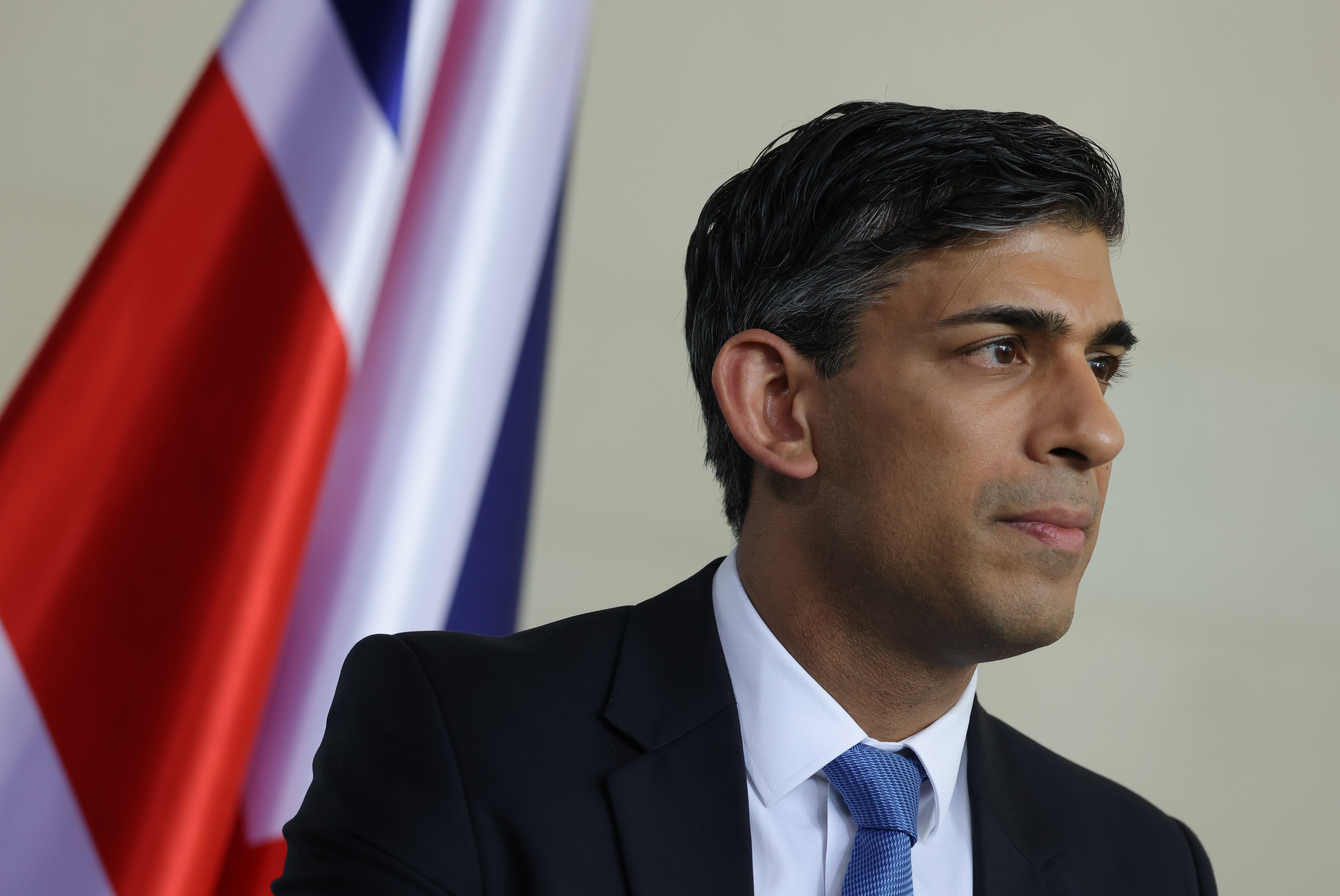Whatever happened to the post-election Tory bloodbath?
If the Conservatives put in a poor showing at the local elections, we were promised that the knives would be out for Rishi Sunak. But it would take the resignation of a cabinet minister – and a few other factors – to kickstart a leadership challenge now, says Andrew Grice


For months, Rishi Sunak’s right-wing critics told us that the results of Thursday’s local elections would be so bad, they would trigger a coup against him. Although the results were at the upper end of the Conservatives’ private predictions, there is no coup yet.
It would take something dramatic to kickstart a serious revolt now – probably the resignation of a cabinet minister – and give the rebels the alternative leader they lack. There’s no sign of that. It seems the hardline critics have repeated their Grand Old Duke of York act. They talk a good game, but then the great rebellion never materialises. This time it matters, because it was their last chance of ousting Sunak before the general election.
Sunak allies are scathing about the rebels. “It’s just a declining band of Boris Johnson admirers plus a few Liz Truss ideologues,” one told me. Some Sunak critics insist they are waiting for the full results before deciding their next move. But Andrea Jenkyns, one of only two Tory MPs to demand a vote of confidence in Sunak as party leader, admitted that the letters requesting such a vote are not going in. She lowered the rebels’ sights, calling for the promotion of right-wingers to the cabinet and for Johnson to be allowed to stand as a general election candidate.
A coup would need the backing of mainstream Tory MPs. Many have little confidence in Sunak, but fear that installing the fourth Tory prime minister since the last election would lose more voters than it might gain. Ben Houchen’s re-election as Tory mayor in the Tees Valley gave wavering Tory MPs the fig leaf they needed to remain loyal to Sunak. Andy Street will probably retain his post as West Midlands mayor when the result is announced today, giving them another ray of hope.
But these are false hopes. Houchen and Street fought independent campaigns and barely mentioned the Tory brand. The 16 per cent swing to Labour in the Tees Valley would allow it to win all five Tory seats in the area at the general election, including Hartlepool.
When Labour lost Hartlepool in a 2021 by-election, Keir Starmer had to be talked out of quitting – only one year into his leadership of the party. Labour lost control of the council on the same day, and regained it on Thursday. Labour officials suspect that some people who backed Houchen voted Labour in the council poll, so those voters will likely support Labour at the general election. Labour’s thumping victory in the Blackpool South by-election is a more reliable guide to the general election than is the Tees Valley result.
Sunak limited the scale of the rebellion against him with pre-election policy initiatives that appealed to right-wing Tories without alienating the rival One Nation group – a crackdown on Britain’s “sicknote culture”; parliamentary approval for his Safety of Rwanda Bill, and, crucially, an increase in defence spending – an issue that might have been the “glue” that held a rebellion together.
This took the wind out of the rebels’ sails as they unveiled a 100-day policy blitz for a new (unnamed) leader, including curbing benefits for mental health conditions (Sunak is doing it); an even bigger rise in defence spending; and reducing migration by banning graduate visas (restrictions are coming soon). One former cabinet minister told me: “Rishi is doing much of what they [the rebels] want. It’s not about policy, it’s personal. If he discovered a cure for cancer, they would still want him out.”
Sunak’s problem is that his victory inside his party was not matched in the country. He desperately needed to show some momentum, but the results gave the lie to his repeated claims that his “plan is working”. It is not working with the voters.
A BBC projected share of the vote shows little progress since last year’s council elections. Labour is on 34 per cent (down one) and the Tories are on 25 per cent (down one).
The only real cloud on Labour’s horizon this weekend is the “Gaza effect”. Starmer’s initial reluctance to call for a ceasefire alienated both Muslim voters and left-wing party members. Labour lost its majority in Oldham – although there were other local factors there – and believes it would have won the West Midlands mayoralty if a pro-Palestine candidate had not stood. Claims that this effect could put 30 seats with large Muslim populations at risk at the general election are probably overblown. But one Starmer loyalist admitted on Thursday that the Gaza factor is “worrying”.
However, it’s the Tories who should lose sleep over these results. Ministers claim Houchen’s victory is a good general-election omen, as it shows voters moving from the “politics of protest” to making a “choice” about who they want in power. The problem with this is that voters do not fear a Starmer government in the way they did a Corbyn one.
Richard Holden, the Tory chair, made the ludicrous claim that we should expect such council results in “mid-term”. Someone had better buy him a calendar; we are at the end of term. The real message of Thursday’s contests is that voters have already made up their minds to change the government – and there is nothing Sunak can do about it.






Join our commenting forum
Join thought-provoking conversations, follow other Independent readers and see their replies
Comments